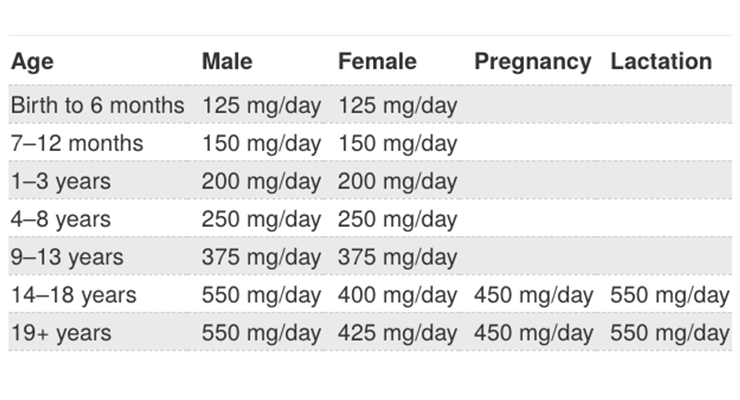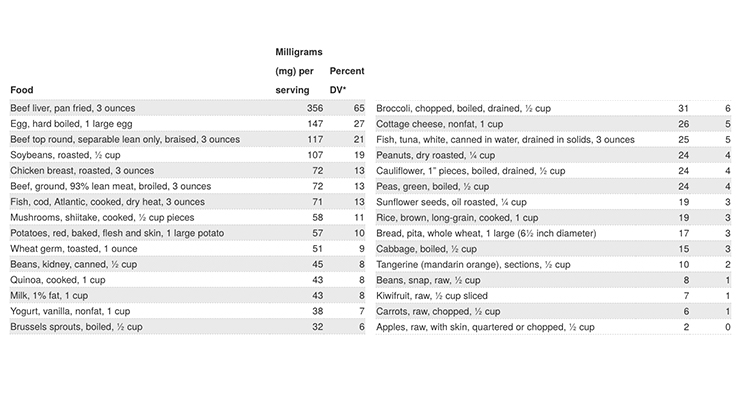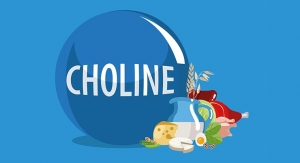03.28.19
Choline was officially recognized as an essential nutrient by the Institute of Medicine (IOM) in 1998. However, more than 20 years later, many Americans are still deficient in the water-soluble, vitamin-like nutrient that plays many important roles in metabolism, from cell structure to neurotransmitter synthesis. In fact, only about 10% of Americans, and 8% of pregnant women—for whom the nutrient is especially important—are getting sufficient amounts.
Choline is believed to have many health implications, and is especially important in the first 1,000 days of life, according to recent and emerging evidence that suggests maternal choline intake during pregnancy and lactation may have lasting beneficial neurocognitive effects on offspring.
Why It’s Important
According to a National Institutes of Health Fact Sheet for Health Professionals, choline is a source of methyl groups needed for many steps in metabolism. “The body needs choline to synthesize phosphatidylcholine and sphingomyelin, two major phospholipids vital for cell membranes. Therefore, all plant and animal cells need choline to preserve their structural integrity.”
In addition, choline is needed to produce acetylcholine, an important neurotransmitter for memory, mood, muscle control, and other brain and nervous system functions. Choline also plays important roles in modulating gene expression, cell membrane signaling, lipid transport and metabolism, and early brain development.
Choline deficiency can cause muscle damage, liver damage, and nonalcoholic fatty liver disease (NAFLD or hepatosteatosis), according to the NIH.
Epidemiological studies suggest that choline protects against neural tube defects and may enhance childhood cognition. Clinical trials have found that choline supplementation improves stress adaptation in the developing fetus. Neural tube defects, including spina bifida and anencephaly, are thought to occur when there is a deficiency of folic acid in the early stages of pregnancy.
The body of research identifying the benefits of higher amounts of choline during specific life stages, particularly during the first 1,000 days of life, is growing. Epidemiological studies indicate a relationship between maternal choline intake and a child’s longer-term cognitive performance.
Ensuring Adequate Intake
Most people in the U.S. consume less than the Adequate Intake (AI) for choline. An analysis of data from the 2013-2014 National Health and Nutrition Examination Survey (NHANES) found that the average daily choline intake from foods and beverages among children and teens is 256 mg for ages 2-19. In adults, the average daily choline intake from foods and beverages is 402 mg in men and 278 mg in women.
In 2016 FDA established a Reference Dietary Intake of 550 mg of choline for foods and supplement products that include the nutrient.
The main dietary sources of choline in the U.S. consist primarily of animal-based products: meat, poultry, fish, dairy products, and eggs. Cruciferous vegetables and certain beans are also rich in choline; other dietary sources include nuts, seeds, and whole grains.
In a policy statement issued in early 2018, the American Academy of Pediatrics identified choline as one of several key “brain building” nutrients that are critical to early childhood development.
Authors of a 2017 study published in the journal Nutrients reported that only 8% of pregnant women are consuming the levels of choline that research says they should be getting.
In June of 2017, the American Medical Association also recommended that evidence-based amounts of choline be included in all prenatal vitamins. “Adequate levels of choline—an important nutrient that helps a baby’s brain and spinal cord to develop properly—are necessary to maintain normal pregnancy including neural development of the fetus and reducing the incidence of birth defects,” Sara Berg, senior communications specialist at the AMA reported at the time. “Inadequate choline levels during pregnancy are thought to negatively affect cognitive development. Neural tube and hippocampus development also are dependent on adequate choline intake. Prenatal vitamins only contain 0–55 mg of choline, leaving the majority of pregnant and lactating women without enough dietary choline to protect the health and development of their babies.”
Table 1: Adequate Intakes (AIs) for Choline

Table 2: Selected Food Sources of Choline

Choline is believed to have many health implications, and is especially important in the first 1,000 days of life, according to recent and emerging evidence that suggests maternal choline intake during pregnancy and lactation may have lasting beneficial neurocognitive effects on offspring.
Why It’s Important
According to a National Institutes of Health Fact Sheet for Health Professionals, choline is a source of methyl groups needed for many steps in metabolism. “The body needs choline to synthesize phosphatidylcholine and sphingomyelin, two major phospholipids vital for cell membranes. Therefore, all plant and animal cells need choline to preserve their structural integrity.”
In addition, choline is needed to produce acetylcholine, an important neurotransmitter for memory, mood, muscle control, and other brain and nervous system functions. Choline also plays important roles in modulating gene expression, cell membrane signaling, lipid transport and metabolism, and early brain development.
Choline deficiency can cause muscle damage, liver damage, and nonalcoholic fatty liver disease (NAFLD or hepatosteatosis), according to the NIH.
Epidemiological studies suggest that choline protects against neural tube defects and may enhance childhood cognition. Clinical trials have found that choline supplementation improves stress adaptation in the developing fetus. Neural tube defects, including spina bifida and anencephaly, are thought to occur when there is a deficiency of folic acid in the early stages of pregnancy.
The body of research identifying the benefits of higher amounts of choline during specific life stages, particularly during the first 1,000 days of life, is growing. Epidemiological studies indicate a relationship between maternal choline intake and a child’s longer-term cognitive performance.
Ensuring Adequate Intake
Most people in the U.S. consume less than the Adequate Intake (AI) for choline. An analysis of data from the 2013-2014 National Health and Nutrition Examination Survey (NHANES) found that the average daily choline intake from foods and beverages among children and teens is 256 mg for ages 2-19. In adults, the average daily choline intake from foods and beverages is 402 mg in men and 278 mg in women.
In 2016 FDA established a Reference Dietary Intake of 550 mg of choline for foods and supplement products that include the nutrient.
The main dietary sources of choline in the U.S. consist primarily of animal-based products: meat, poultry, fish, dairy products, and eggs. Cruciferous vegetables and certain beans are also rich in choline; other dietary sources include nuts, seeds, and whole grains.
In a policy statement issued in early 2018, the American Academy of Pediatrics identified choline as one of several key “brain building” nutrients that are critical to early childhood development.
Authors of a 2017 study published in the journal Nutrients reported that only 8% of pregnant women are consuming the levels of choline that research says they should be getting.
In June of 2017, the American Medical Association also recommended that evidence-based amounts of choline be included in all prenatal vitamins. “Adequate levels of choline—an important nutrient that helps a baby’s brain and spinal cord to develop properly—are necessary to maintain normal pregnancy including neural development of the fetus and reducing the incidence of birth defects,” Sara Berg, senior communications specialist at the AMA reported at the time. “Inadequate choline levels during pregnancy are thought to negatively affect cognitive development. Neural tube and hippocampus development also are dependent on adequate choline intake. Prenatal vitamins only contain 0–55 mg of choline, leaving the majority of pregnant and lactating women without enough dietary choline to protect the health and development of their babies.”
Table 1: Adequate Intakes (AIs) for Choline






























